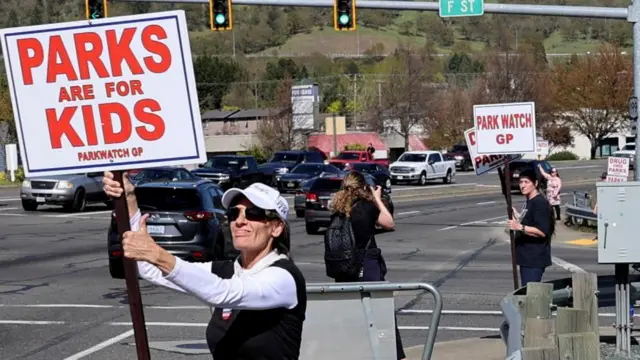Court backs Oregon law ban on homeless campingpublished at 15:09 BST 28 June 2024
Sam Granville
Reporting from Los Angeles
 Image source, Reuters
Image source, ReutersA group of Grants Pass residents called Park Watch in April protest to raise awareness of people who are homeless sleeping in parks
The US Supreme Court has ruled that cities can ban homeless people from sleeping rough.
It is the court's most significant decision on homelessness since at least the 1980s, when many experts say the modern US homeless crisis began.
The ruling lets local governments enforce rules against people sleeping in public places without worrying about the US constitution's limits on cruel and unusual punishment.
The case started in the small town of Grants Pass, Oregon where three homeless people sued the city after receiving citations for sleeping and camping outside.
At a Supreme Court hearing in April, the city argued that criminal penalties were necessary to enforce local laws banning homeless people from public spaces for "reasons of cleanliness and safety".
The homeless residents said those penalties violated the Eighth Amendment of the US constitution because the city did not have any public shelters.
The conservative-led court appeared skeptical that it should make determinations about local laws, with some justices more inclined to leave those decisions to elected officials.
Homelessness is on the rise in the US, fuelled in part by chronic shortages of affordable housing. Around 653,000 people did not have homes in 2023, the largest number since tracking began in 2007.
There were also an estimated 256,000 people living without shelter on a given night across the country last year, according to the Department of Housing and Urban Development., external